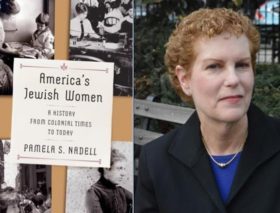
Informed by shared values of America's founding and Jewish identity, these women's lives have left deep footprints in the history of the nation they call home. History, chairs AUs Critical Race, Gender, and Culture Studies Collaborative, and is. Nadell recounts how Jewish women have been at the forefront of causes for centuries, fighting for suffrage, trade unions, civil rights, and feminism, and hoisting banners for Jewish rights around the world. Nadell holds the Patrick Clendenen Chair in Womens and Gender. The twin threads binding these women together, she argues, are a strong sense of self and a resolute commitment to making the world a better place. Nadell weaves together the stories of a diverse group of extraordinary people-from the colonial-era matriarch Grace Nathan and her great-granddaughter, poet Emma Lazarus, to labor organizer Bessie Hillman and the great justice Ruth Bader Ginsburg, to scores of other activists, workers, wives, and mothers who helped carve out a Jewish American identity.

What does it mean to be a Jewish woman in America? In a gripping historical narrative, Pamela S. Nadell does it in informative and succinct style, and the result is a readable, valuable text.A groundbreaking history of how Jewish women maintained their identity and influenced social activism as they wrote themselves into American history. It is easy to kvetch, but Nadell has taken on a big job in covering such a multidimensional, important subject. The broadness of the topic means there are some omissions: the writers Grace Paley and Edna Ferber are mentioned but not, say, Tillie Olsen or Cynthia Ozick some prominent Jewish women are covered too cursorily (two 20th-century political firebrands, Emma Goldman and Bella Abzug, are accorded all of three sentences each) and American Sephardic women and Jewish feminist theology are barely dealt with.

She also turns out strong mini-profiles of several dozen prominent figures and unearths the little-discussed oppressive side of American Jewish women’s history, including sexual harassment of sweatshop workers and economic hardships that forced some Jewish women into prostitution. particular strengths are social, labor, and cultural history.


 0 kommentar(er)
0 kommentar(er)
